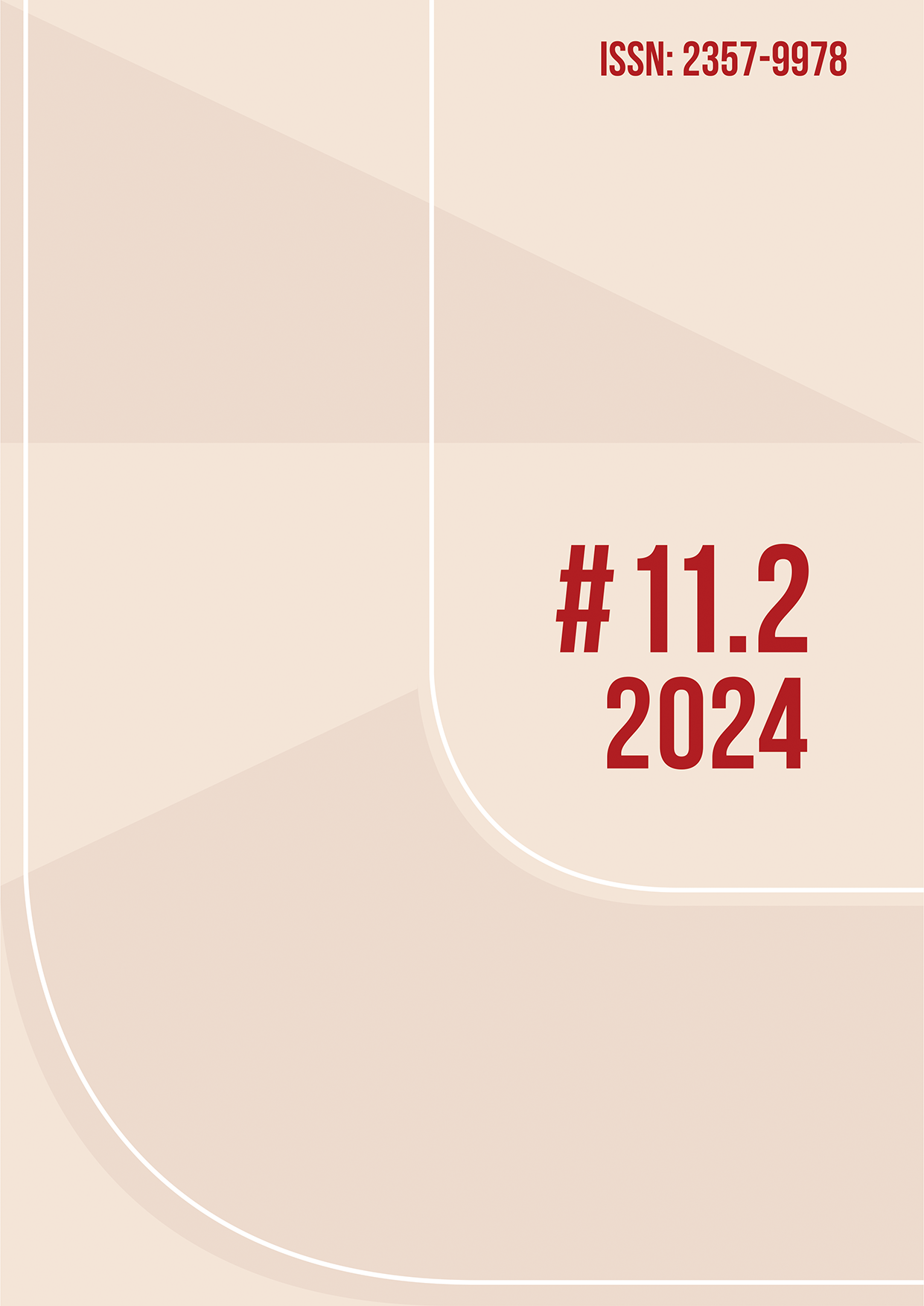Popular Song and Politics: Ary Barroso and the Sonic Signature of the Nation
DOI:
https://doi.org/10.36025/arj.v11i2.36188Keywords:
Brazilian Republic history, patriotic samba, sonic signature of the nation, music and politics, Ary BarrosoAbstract
An historical-musical analysis is undertaken regarding the possibility of using song as a tool for political persuasion. Through the observation of parameters that shape the song, the aim is to understand elements jointly responsible for the engagement of the musical sign. This political treatment of artistic production is observed through an investigation conducted in a significant period of Brazil's republican history: the Estado Novo. The choice of this period is motivated by the establishment of a dictatorship and the tensioning of forces that resorted to tactics to enforce an ideological doctrine. A critical point in this process is the production of representations and images capable of accessing the imaginary of an idealized "Brazilian people." Ary Barroso's patriotic sambas, notably "Brazil," serve as our sources. His songs were taken as a means of shaping a discursive-musical speech that outlines and constructs what has been conventionally referred to as the "Brazilian people."
Downloads
References
ANDERSON, Benedict. Nação e consciência nacional. São Paulo: Ática, 1989.
CABRAL, Sérgio. No tempo de Ary Barroso. Rio de Janeiro: Lumiar, [199-].
CONTIER, Arnaldo Daraya. Música no Brasil: história e interdisciplinariedade. Algumas interpretações (1926-80). In: SIMPÓSIO NACIONAL DE HISTÓRIA, 16., 1991, Rio de Janeiro. História em debate: problemas, temas e perspectivas. Anais do XVI Simpósio da Associação Nacional dos Professores Universitários de História. [S.l.]: CNPQ/InFour, 1991. p. 151-189. Disponível em: https://anpuh.org.br/uploads/anais-simposios/pdf/2018-12/1545848660_6f9f1be5f0209709db411a72478995c4.pdf. Acesso em: 20 Nov. 2024.
CUNHA, Fabiana Lopes da. Música para educar e exaltar a nação e o trabalho: Capanema, os projetos de Mário de Andrade e Villa-Lobos e o Estado Novo. In: CUNHA, Fabiana Lopes da. Da marginalidade ao estrelato: o samba na construção da nacionalidade (1917- 1945). São Paulo: Annablume, 2004.
D’ARAUJO, Maria Celina. O Estado Novo. Rio de Janeiro: Jorge Zahar, 2000. (Coleção Descobrindo o Brasil).
FOUCAULT, Michel. A ordem do discurso. São Paulo: Loyola, 2006.
GELLNER, Ernest. Nações e nacionalismo. Lisboa: Gradiva, 1993.
HOBSBAWN, Eric. Introdução: a invenção das tradições. In: HOBSBAWN, Eric; RANGER, Terence (org.). A invenção das tradições. Rio de Janeiro: Paz e Terra, 1991. p. 9-23.
MATOS, Cláudia Neiva de. Acertei no milhar: malandragem e samba no tempo de Getúlio. Rio de Janeiro: Paz e Terra, 1982.
McCANN, Bryan. Hello, hello Brazil: popular music in the making of modern Brazil. North Caroline: Duke University Press, 2004.
MIRANDA, Wander Melo. Brutalidade Jardim: tons da nação na música brasileira. In: CAVALCANTE, Berenice; EISENBERG, José; STARLING, Heloisa (org.). Decantando a República: um inventário histórico e político da canção moderna brasileira. v. 2. Rio de Janeiro: Nova Fronteira: São Paulo: Fundação Perseu Abramo, 2004.
NAPOLITANO, Marcos. Síncope das Ideias: A questão da tradição na música popular brasileira. São Paulo: Fundação Perseu Abramo, 2007a.
NAPOLITANO, Marcus. Aquarela do Brasil. In: NESTROVSKI, Arthur (org.). Lendo Música: 10 ensaios sobre 10 canções. São Paulo: Publifolha, 2007b. p. 119-140.
NAVES, Santuza. O Violão Azul: modernismo e música popular. Rio de Janeiro: Fundação Getúlio Vargas, 1998.
OLINTO, Antônio. Ary Barroso: a história de uma paixão. Rio de Janeiro: Mondriand, 2003.
SOARES, Astréia. Aquarelas Brasileiras: A exaltação nacional na música popular. Cadernos de Filosofia e Ciências Humanas, v. VI, n. 10, p. 95-125, 1998.
TATIT, Luiz. O Cancionista. São Paulo: EDUSP, 1996.
TRAVASSOS, Elizabeth. Modernismo e Música Brasileira. Rio de Janeiro: Jorge Zahar, 2000. (Coleção Descobrindo o Brasil).
VIANNA. Hermano. O mistério do samba. Rio de Janeiro: Jorge Zahar; Ed. UFRJ, 2002.
VIANNA, Luiz Werneck. O Estado Novo e a “ampliação” autoritária da República. In: CARVALHO. Maria Alice R. de. República no Catete. Rio de Janeiro: Museu da República, 2001.
WISNIK, José Miguel. Getúlio da paixão cearense. In: ESQUEFF, Enio; WISNIK, José Miguel. O nacional e o popular na cultura brasileira. São Paulo: Brasiliense, 2001. p. 129-191.
Downloads
Published
How to Cite
Issue
Section
License
Copyright (c) 2024 Ricardo Alexandre de Freitas Lima (Autor)

This work is licensed under a Creative Commons Attribution-NonCommercial-ShareAlike 4.0 International License.

This work is licensed under a Attribution-NonCommercial-ShareAlike 4.0 International (CC BY-NC-SA 4.0) License.
Authors retain copyright, while licensing their work under a Attribution-NonCommercial-ShareAlike 4.0 International (CC BY-NC-SA 4.0) License.


 English
English Português (Brasil)
Português (Brasil)
